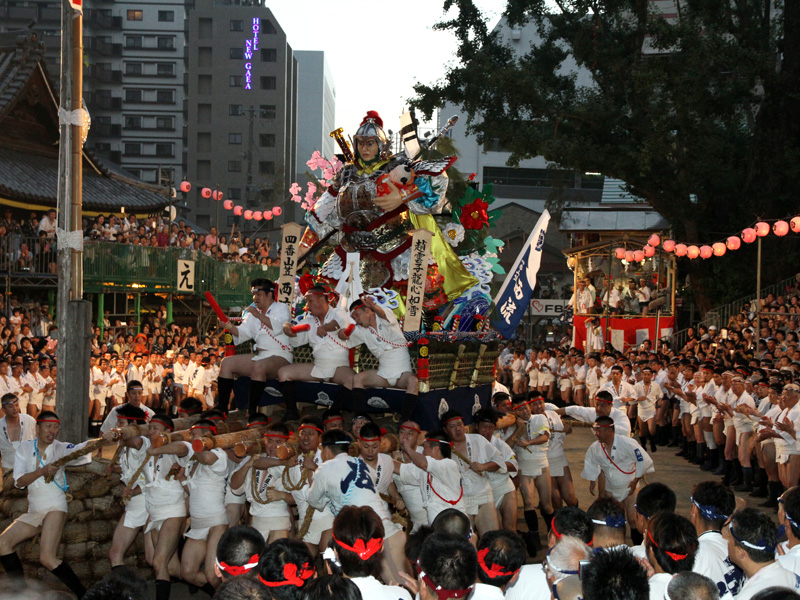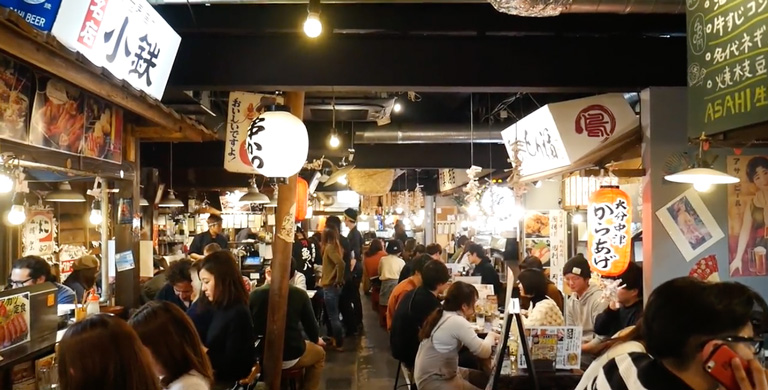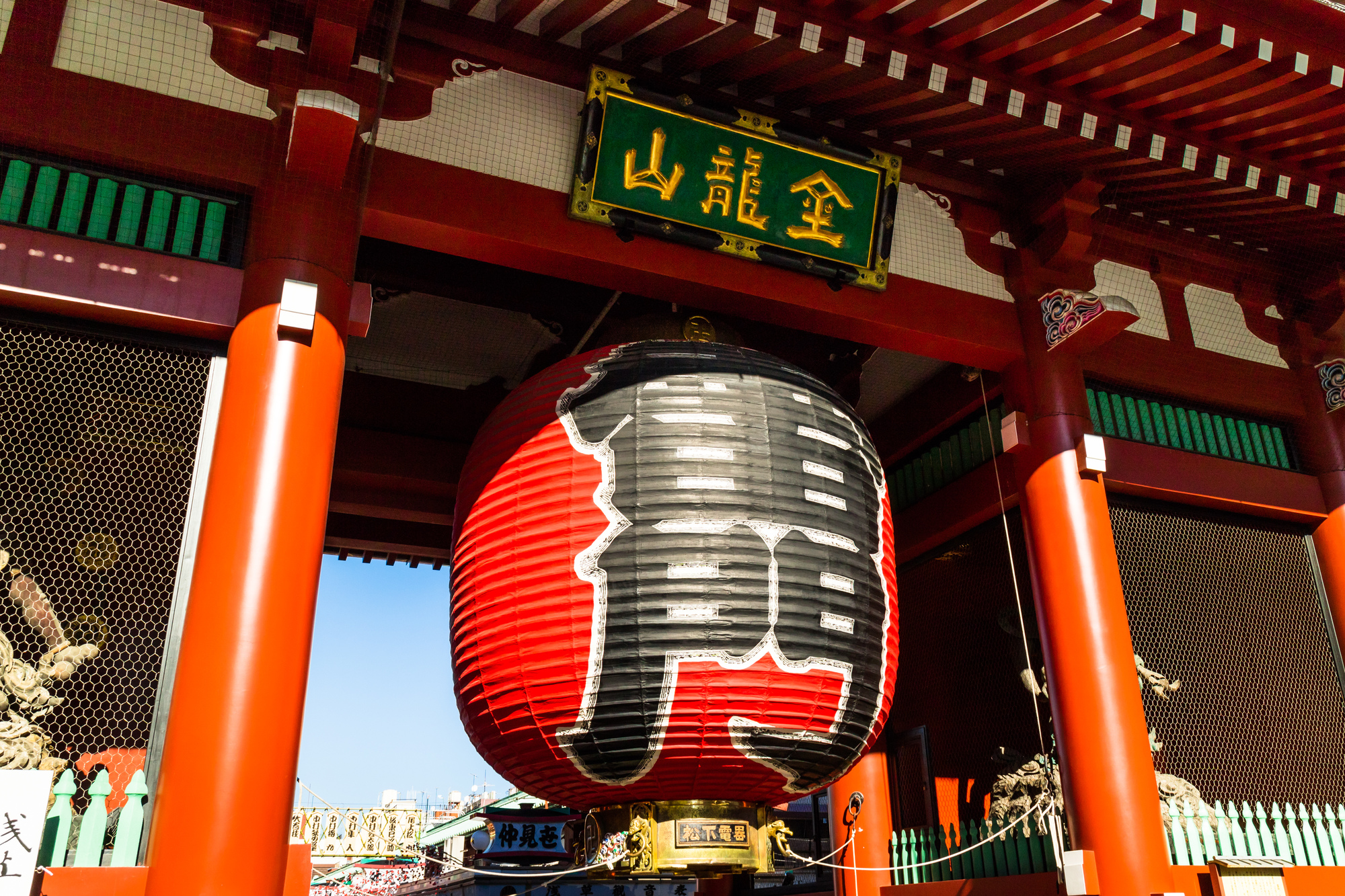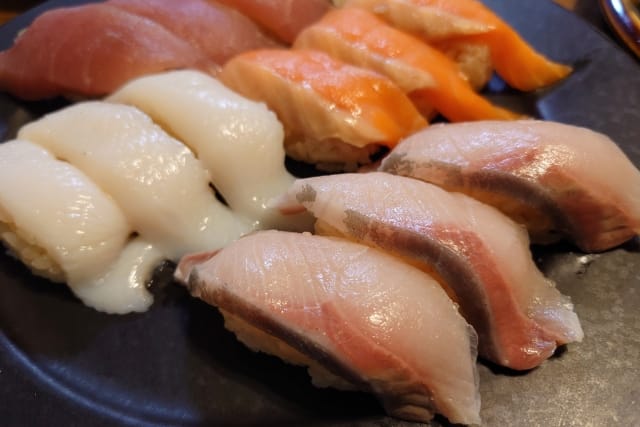Best 6 Traditional Festivals "Matsuri" Guide in Fukuoka, July 2017 (w/Photos)
Traditional festivals held in Fukuoka for July, 2017 brought to you by MagicalTrip staff. Guaranteed to experience the local atmosphere and lifestyle to its fullest! Might end up being the highlight of your Fukuoka sightseeing trip.Wondering what to do? Besides festivals, we also cover various other must-see events in Fukuoka , July 2017! There are also lots of interesting festivals and events held in well known cities of Japan. Check it out!
Must-see! Hakata Gion Yamakasa – 1, 9 to 15 July

source:flickr
Hakata Gion Yamakasa is a dedication ritual at the Kushida Shrine which has continued for more than the past 700 years. This festival is held from the first day of July, up until the 15th. This festival is one of the few biggest festivals in Japan and is not just long. It is a very important festival to even those at the big city, Hakata, to the point that workers forget about their own work and become passionate. The distinct feature of this festival is the special float called Yamakasa, which is a couple of meters tall. This Yamakasa float is pulled by many adult men and they run around with this float around the urban area. These men pull multiple of these Yamakasa! Impressive and powerful as it is, it is normal to have some urban area to be broken, and even have casualties to those who pull the Yamakasa. However, just looking from faraway means you are away from the danger. The main schedule is on July 1st, a big “Decorated Yamakasa”, is placed in specific places of the town, and by the 15th, the “Chasing Yamakasa” is pulled in town around by men. In a total, 8 Yamakasa gather in town and race for a goal. In the race, the 1st place Yamakasa gets to sing the “Hakata Celebration Song”, which is also a must-see. Anyways! They have such an impressing powerfulness, and the whole town becomes passionate about the Hakata Gion Yamakasa. We highly recommend going to this festival.
Schedule
1st July : Early morning, Morning, Evening
9th July : Evening
10th July : Evening
11th July : Early morning, Evening
12th July : PM3:59
13th July : PM3:30
14th July : Evening
15th July : AM4:59
Access & Address
5 min by walk from Gion Station
- 10 min by train from Hakata Station
Held around Kushida Shrine, 1-41 Kamikawabatamachi, Hakata-ku, Fukuoka
Price / Charge & Reservation
Free & don’t need to reserve.
Official Site
Hakata Gion Yamakasa Official Site
Must-see! Atago Shrine, Hoozuki Summer Festival – 16 to 17 July

source:flickr
This Hoozuki Summer Festival is located at the West area of Fukuoka, it is at one of the Japan’s three Atago’s, the Atago Shrine. During the Meiji Era, they prayed for the well-being of people by dedicating a Hoozuki to God and because it had effects, they continue this tradition even today. This festival as Hoozuki city holds Rock-paper-scissor tournaments, Watermelon hitting, or even fast eating contests, and is loved by the citizens. Also, under the Sakura Gate is a Chinowa, a purifying ring, almost bigger than 2 meters, in which you go through the ring. By going through, it is said to purify you and it is very crowded there.
Schedule
16th to 17th July : PM8:00-11:00
Access & Address
20 min by walk from Muromi Station
- 40 min by train from Hakata Station
Held around Atago Shrine, 2-7-1 Atago, Nishi-ku, Fukuoka-shi, Fukuoka
Price / Charge & Reservation
For free & don’t need to reserve.
Official Site
Atago Shrine, Hoozuki Summer Festival Official Site
1. Shisojima Shishi Mawashi (Traditional Lion Dance) – First Sunday after rice planting
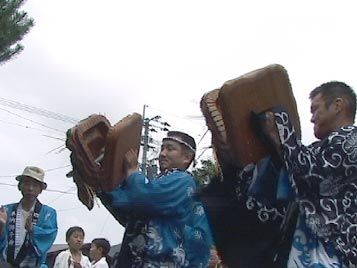
source:福岡民族芸能ライブラリー
Shisojima Shishi Mawashi is a festival held at the Shisojima Tenman-Gu Shrine at Asakuragun, Chikuzen Town. This festival is said to have started around 1860 to celebrated with the meaning of the farms flourishing, no epidemics, and that each family can live at peace. The festival follows the traditions from the past, starting with an exorcism in front of the shrine to purify your body. After, the people will split into upper and lower groups dancing traditionally around houses which had celebratory events such as birth of a child or building of a new house. Along the road of celebrating, they may splash water as a method of purification so you might get wet. Just as a precaution if you want to see the festival!
Schedule
First Sunday after rice planting : Date & Time to be determined
Access & Address
10 min by bus from Tsuko Station
- 1 hour 20 min by train from Hakata Station
Held around Shisojima, Chikuzen-cho, Asakura-gun, Fukuoka
Price / Charge & Reservation
For free & don’t need to reserve.
Official Site
Shisojima Shishi Mawashi (Traditional Lion Dance) Official Site
2. Ogura Gion Taiko (Drum) – 1, 14 to 16 July

The Ogura Gion Taiko is a festival held around the Ogura Castle, where they attach a Japanese drum, Taiko, to a float and they walk around town drumming. They have adult groups and kid groups, a total of 100 Taiko teams participating, everybody wearing a uniform of the same coats, they compete with their traditional drumming methods. If you want to hear the amazing Japanese drums, this a recommended.
Schedule
1st July : PM7:00-
14th July : Time to be determined
15th July : PM3:30-
16th July : AM11:00-, PM6:30-
Access & Address
15 min by walk from Kokura Station
- 35 min by train from Hakata Station
Held around 2 Jonai, Kokurakita-ku, Kitakyushu-shi, Fukuoka
Price / Charge & Reservation
For free & don’t need to reserve.
Official Site
Ogura Gion Taiko (Drum) Official Site
3. Tobata Gion Oyamagasa Event – 21 to 23 July

Tobata Gion Oyamagasa is, along with the Ogura Gion Taiko and Hakata Gion Yamakasa, considered to be one of Fukuoka Prefecture’s Big 3 festivals and is celebrated with the Tobihata Hachiman Temple, Sugawara Shrine, and the Nakahara Hachiman Temple joining together for this summer festival. This event is considered the country’s important intangible cultural property. Similar to the Hakata Gion Yamakasa, this festival also uses a Yamakasa, but it’s most important feature is the change between how the Yamakasa looks during the day and night. The day Yamakasa is decorated with chrysanthemum and is considered a rich and beautiful Yamakasa. The one that appears at night is approximately 7 meters tall, and with 12 steps, each decorated with a total of 309 lanterns; this yamakasa is considered a shining and beautiful one. It is one of the biggest Yamakasa in japan and is worth seeing at least once.
Schedule
21st to 23rd July : Time to be determined
Access & Address
10 min by walk from Tobata Station
- 50 min by train from Hakata Station
Held around Tobata-ku, Kitakyushu-shi, Fukuoka
Price / Charge & Reservation
seats from 3,500 yen & need to reserve in advance.
Please contact us for advance ticket status.
Official Site
Tobata Gion Oyamagasa Event Official Site
4. Okunomiya Fudou Shrine, The Summer Great Festival – 28 July

source:Miyajidake Jinjya
It is a Summer Great Festival held at the Miyajidake Shrine and Okunomiya Fudou Shrine. At the Miyajidake Shrine, other than the main shrine is the “Okunomiya Eight Yashiro” which has eight sacred areas all worshipped, and is said, “If you worship at all Eight Sacred Areas, your great wish will come true.” Because of this, there have been many people visiting this shrine since long ago. This place has the Japan’s biggest Megalithic tomb which is said to worship the Fudou Myouou, or the acala naatha. Just on the day of the festival, there is special permission to enter the stone room where the tomb is laid to directly worship. With a proudful 23 meters length, it is Japan’s biggest scale tomb and is a very valuable experience to have.
Schedule
29th July : AM10:00-PM5:00
Access & Address
5 min by taxi from Fukuma Station
- 40 min by train from Hakata Station
Held around Miyajidake Shrine, 7-1 Miyajimotomachi, Fukutsu-shi, Fukuoka
Price / Charge & Reservation
For free & don’t need to reserve.
Official Site
Okunomiya Fudou Shrine, The Summer Great Festival Official Site
